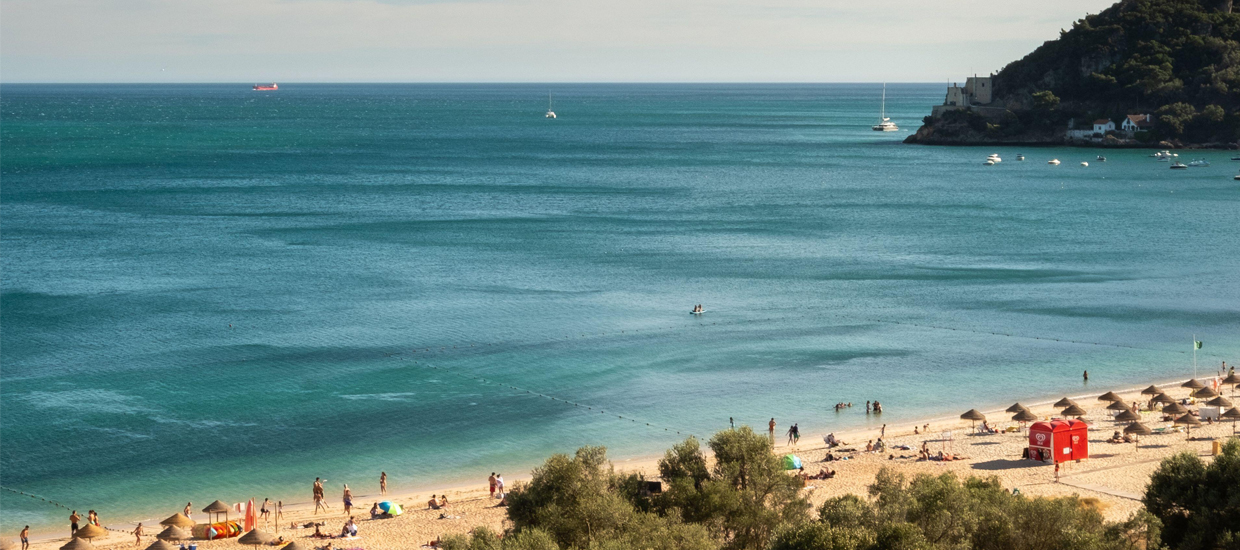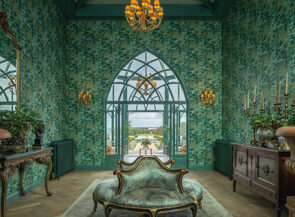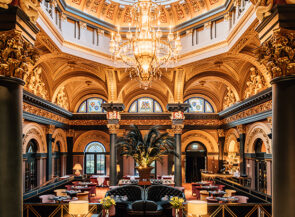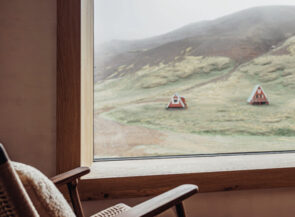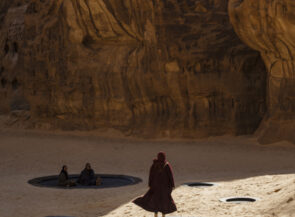Seaside sights, classic Portuguese cuisine, and a beautiful nature reserve await in Arrábida
Despite being less than an hour south of Lisbon, Arrábida is a well-kept secret. The Parque Natural da Arrábida boasts mountains, forests, and beaches, and it’s surrounded by historic villages and the city of Setúbal, the former hub of Portugal’s fishing industry. The descendants of the last Irish monarchs settled here in the 18th century, after their ancestors fled the Emerald Isle, and it’s rumored that Jackie Kennedy and her children decamped to a friend’s manor here after JFK’s assassination. Arrábida, though, doesn’t put on airs. Between the seafood, the wine, the landscape, and the slow pace, life here is good.
See & Do

A pod of around two dozen dolphins lives year-round in Setúbal Bay, and you can see them up close on a cruise with Dolphin Bay, which uses an eco-friendly catamaran featuring an underwater viewing room and marine biologist guides. Afterward, drive a few minutes west along the coast to find the narrow, craggy stairway that leads down to Lapa de Santa Margarida, a natural cave housing a shrine to its namesake saint. (The sanctuary was supposedly built in the 17th or 18th century by sailors who found refuge from pirates in the cave.) Not far away is Praia dos Coelhos, which locals swear is the country’s wildest strip of sand; adventurous souls willing to brave the Atlantic waves can kayak from the cave to the beach. To create a custom souvenir, take a tile-making workshop in the village of São Simåo at Azulejos de Azeitão.
Eat & Drink
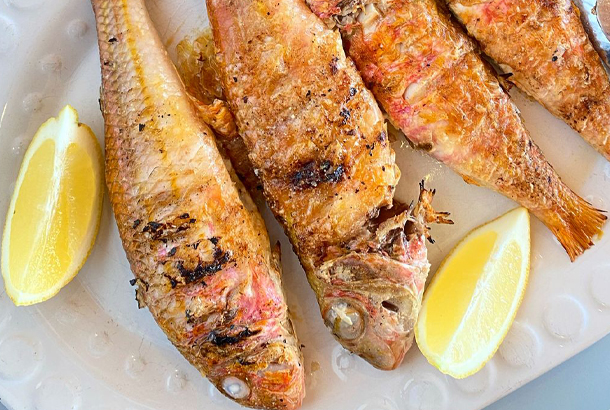
Seafood is the order of the day around here. Setúbal’s Mercado do Livramento serves plump and nutty Portuguese oysters with passion fruit and sparkling wine, while Restaurante Farol on Praia do Portinho heaps helpings of the local favorite choco frito (deep-fried cuttlefish) onto its no-frills oceanside tables. Thirsty? Head to the village of Azeitão and sip a moscatel roxo at the 19th-century manor that houses José Maria da Fonseca, Portugal’s oldest maker of table wines. For dessert, go next door to the charming cafe Casa Negrito and try a torta de azeitão, a cinnamon-drizzled egg custard pastry.
Stay
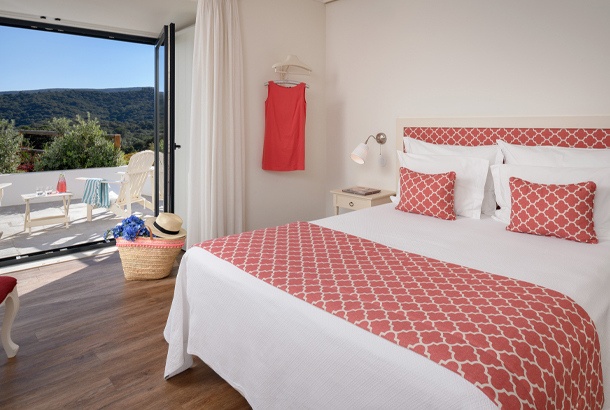
The five-star Hotel Casa Palmela dates to the 17th century and until recently was home to the Duke of Palmela. Rooms done up in a fresh palette of white, blue, and green overlook a lush valley dotted with pine and olive trees, but the views are best experienced from the poolside terrace at sunset. The scene will leave you speechless, much as it did Hans Christian Andersen, who upon visiting in 1866 wrote, “Darkness crept through the trees, and the leaves seemed to form an enormous velvet cloth, on which delightfully twinkling fireflies settled. All this beauty could never be reproduced in a painting or described in words.”
From $270, hotelcasapalmela.pt
